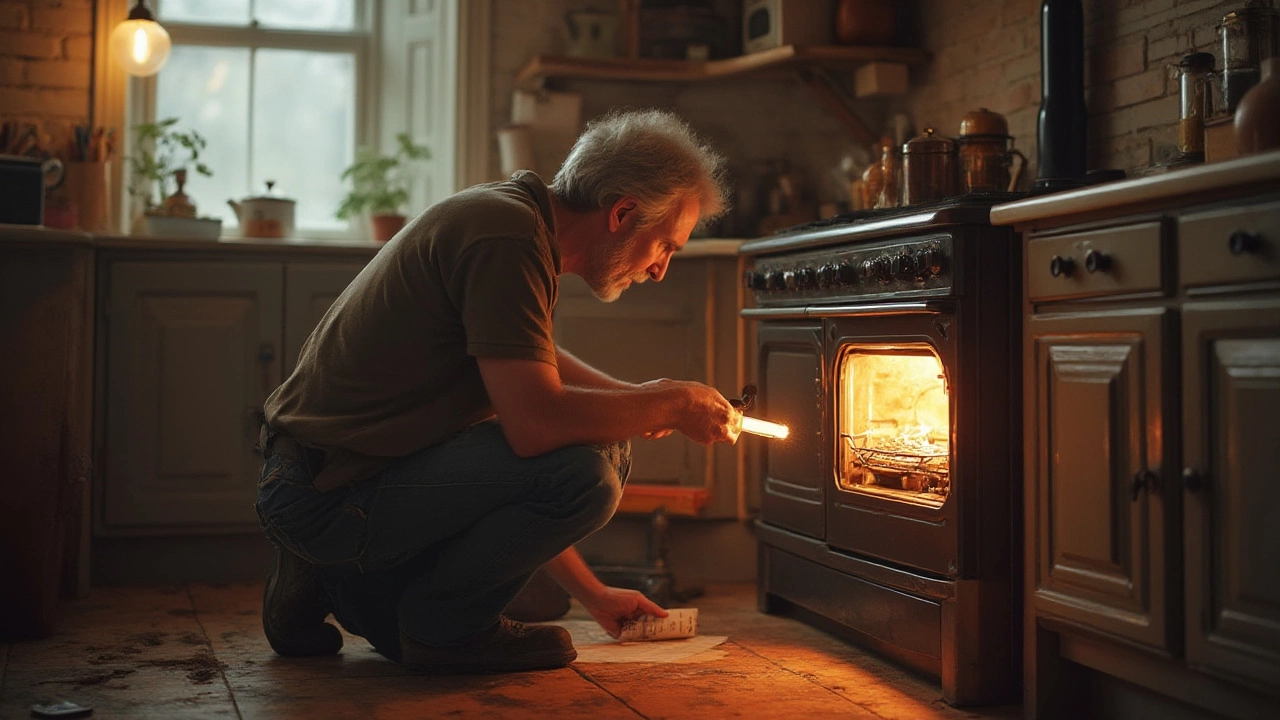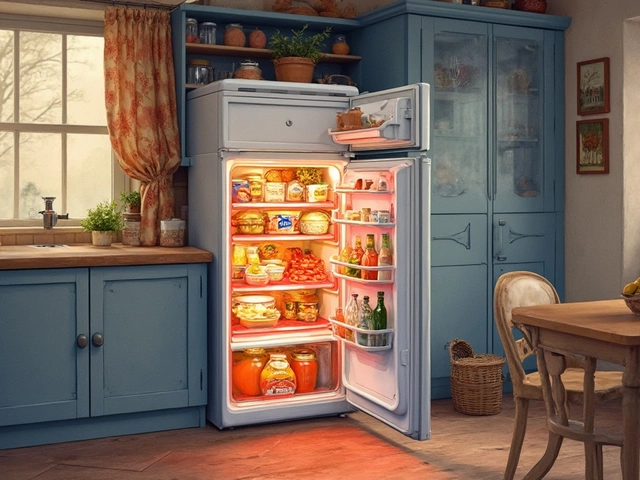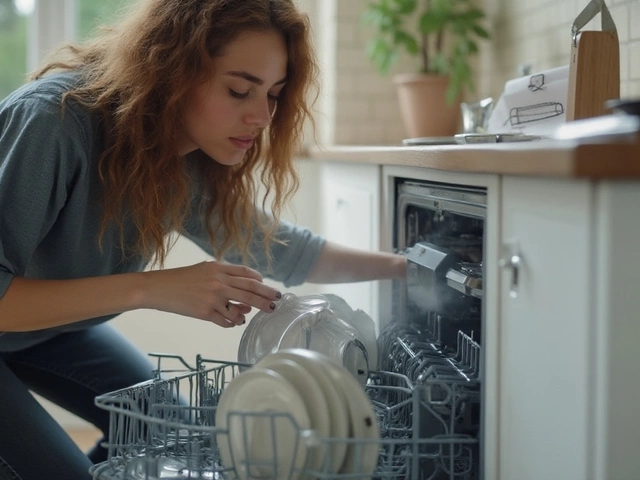Nothing stops dinner plans faster than an oven that won’t heat. Before you panic and order takeout, try a few simple checks. Most oven heating problems are caused by a broken heating element, a blown fuse, or a faulty temperature sensor. Knowing what to look for can save you time, money, and a trip to the repair shop.
1. Burnt heating element. In electric ovens the element is the metal coil you see at the bottom or back. If it looks dark, cracked, or you hear a sizzling noise when you turn the oven on, the element is probably dead. A multimeter can confirm if it has continuity – but if you’re not comfortable with tools, it’s a clear sign to call a pro.
2. Faulty thermostat or temperature sensor. The thermostat tells the oven when to heat up. Over time, the sensor can drift and the oven thinks it’s already at the right temperature. You’ll notice a steady oven temperature that never rises, even though the control shows a higher setting.
3. Tripped circuit breaker or blown fuse. Ovens draw a lot of power. If the breaker trips, the oven will stay dead. Check your consumer unit; if the switch is in the off position, flip it back on. If it trips again, you have an electrical issue that needs a qualified electrician.
4. Door latch problems. Modern ovens won’t heat if the door isn’t fully closed. The latch sensor can get stuck or break, leaving the oven thinking the door is open. Open the door fully and close it again; you should hear a click. If the oven still refuses to heat, the latch may need replacement.
5. Control board failure. The electronic board that runs the oven’s functions can go bad. This is less common but can cause random heating failures. Look for error codes on the display – they often point straight to the board.
If you’ve checked the element, thermostat, breaker, and door latch and the oven still won’t heat, it’s time to bring in the experts. Trying to replace a control board or work inside the oven’s wiring without proper training is risky. Bognor Regis Appliance Repair Experts have the tools and experience to diagnose and fix any heating issue safely.
We’ll start with a quick visual inspection, then test the element, thermostat, and safety switches. If we need a part, we keep a stocked inventory of common oven components, so most repairs are done on the spot. Most customers get their ovens back in working order within an hour.
Choosing a local service matters. We know the typical models in Bognor Regis homes, and we’re just a short drive away. That means faster response times and lower travel costs. Plus, we’re fully insured and GAS Safe certified for any gas‑oven work.
Before you book, have these details ready: the oven’s make and model, the exact problem (e.g., “won’t heat at any temperature”), and any error codes shown. This helps us arrive prepared and speeds up the repair.
In short, a non‑heating oven is usually a simple fix – a burnt element or a tripped breaker. But when the problem is deeper, a qualified technician will get it sorted quickly and safely. Don’t let a faulty oven ruin your dinner plans; give Bognor Regis Appliance Repair Experts a call and get back to cooking in no time.

Got a cold oven? Learn if you can swap that faulty heating element yourself, what tools you'll need, and exactly what to watch out for. Easy fixes, with real-life tips.

Understanding what usually fails in a fridge can save you time and money. This article explores common issues like malfunctioning thermostats, compressor problems, and leaky seals. Learn helpful tips for diagnosing and possibly fixing these issues yourself. Knowing when to call a professional is also crucial in the life of your fridge.

Wondering if that decade-old laptop should stick around or be kicked to the curb? This article dives into the practicality, challenges, and potential of keeping a 10-year-old laptop. With tips on upgrading components, performance tweaks, and sustainability, you'll discover whether holding on to an old device is a wise choice. Including pros and cons, this guide offers straightforward advice for the tech-savvy and beginners alike. Explore the balance between nostalgia and functionality in the ever-evolving world of technology.

Ever opened your freezer to find squishy ice cream or thawed food when it should be rock solid? This article digs into the real reasons your freezer refuses to stay frozen, from simple mistakes to sneaky mechanical fails. Learn how to spot common culprits, fix minor issues yourself, and know when things are actually serious. Packed with practical tips and straightforward advice, you'll get the cold facts and solutions you need. No jargon, just help you can actually use.

Discover how long extractor fans last, what shortens their life, and tips to maximize their lifespan in your kitchen or bathroom. Practical, clear advice from real experience.

Determining whether your dishwasher requires repair or replacement can save you both time and money. This article guides you through recognizing common issues, assessing the efficiency of your current dishwasher, and deciding on repair versus replacement. Gain insights into the lifespan of dishwashers and learn handy tips for maintaining them. Make well-informed decisions about your kitchen appliances for a hassle-free experience.